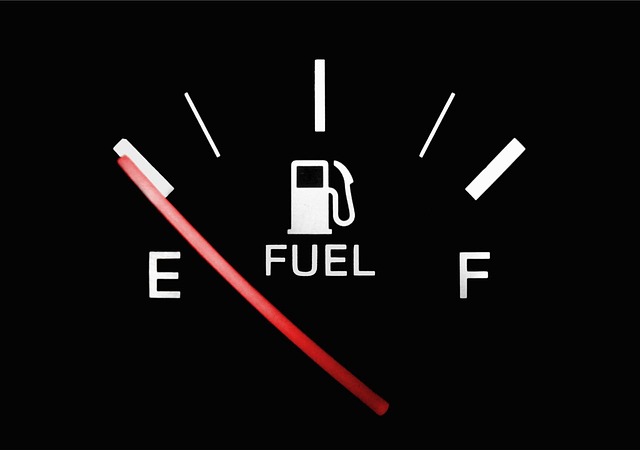When the Going Gets Tough…
Ever feel like the walls are closing in on you? Like no matter what you do, nothing seems to be panning out or taking off? Have you ever sat at the keyboard or had pen and pad in hand, but finding the first words to start a sentence feels like you’re trying to fit a camel through the eye of a needle? Or maybe you’re super proud of what you’ve created! Only to find that no one else shares your enthusiasm. If any of that sounds familiar, like you’re running on fumes, you aren’t alone.
If you’re like me, there’s no such thing as quitting—though, a time or two, the thought that you might be wasting your time has snuck into the recesses of your mind, you just won’t give in! Even with such a resolute stance, boy, can it get tough to keep putting one foot in front of the other. Hell, sometimes, I find that I’m using two left feet when I finally get moving! Pressing onwards, whether we admit or not, is hard. But I’ve found ways to do just that.
…the Tough Get Going
Find your “why”
When I was 27, I applied to the Corpus Christi Fire Department. I actually did well on the civil service exam and because I was in aesthetically pleasing shape, I thought the physical agility test would be a breeze. To be sure, I took a thermogenic supplement along with a pre-workout and an energy drink hours before the test started. I easily surpassed the set standards for pushups, sit-ups, and vertical jump before trotting confidently to the starting line for the paltry mile-and-a-half run…where I suddenly didn’t feel too good.
It was a hot, humid day but I wasn’t sweating at all—a sign of significant dehydration. I started my run—with a confidence-boosting fifteen-minute time-limit—and immediately felt stitches in my side. Several times throughout the run, I had to stop just to catch my breath. After brief breaks of brisk walking, I’d start running but I’d feel death hovering over me, threatening to snatch my life. I was in so much pain and discomfort, that at one point I even considered quitting…but I found my why!
Each time I felt like giving up, I’d remember my daughter who would be born in less than three months. What kind of a life would I be able to give her if I didn’t even have a steady, well-paying job? What kind of a man would I be if I gave up just because of some pain—ominous, breath-stealing pain, no less? This was the first time in my life that I was actually faced with laying down my life for anyone. And I wouldn’t have successfully passed the run—even though I was rushed via ambulance to the emergency room for heat exhaustion nearing a stroke—unless I had a strong enough reason to do so: my “why”.
Today, my “why” is a little different. There’s no other calling for me except writing. And, as I moonlight fulltime at the best job in the world (firefighting), I’ll hold fiercely to the hope of success as an author and the chance to provide richly for my growing family. You must find your “why”, writer!
Set attainable goals
The first time I sat down to write, I didn’t know I’d be completing the first draft of a novel six years later. All I wanted to do was write a short story based on a scary event that had happened to me in my teenage years. And that’s exactly what I did…sort of… It wasn’t a short story, actually. It was merely a scene. But it was something!
Unfortunately, I hadn’t learned yet to set attainable goals. The scene turned into a chapter…which led to another chapter…and another…and…another. Until I wrote myself into a great, big circle, gave up, and started something else. I didn’t learn from that experience either. In fact, only recently—say the past year, a few short stories, two started and stopped novels, and a handful of poems later—did I finally learn to set attainable goals.
Everyone’s experience is generally different, but this is how it happened for me. I focused on one story, gathered all my thoughts, my notes, my characters, my scenes, my plot twists, and I sat at my desk just thinking about what I was trying to write. Because of my lack of experience, I used extremely helpful, preset templates like Jill Chamberlain’s Nutshell Technique, Dan Harmon’s Story Circle—I even compared it to Joseph Campbell’s more complete Hero’s Journey as found in The Hero with a Thousand Faces—and the Three Act Story Structure as explained by Abbie Emmons. Each of these turned out to be extraordinarily helpful in many ways, but especially in managing my story and dividing it into pieces that I conquered one by one.
Satisfied that I actually had a story, I set a new attainable goal: draft an outline. This led to expanding the outline, another attainable goal. I learned that I could write a scene in roughly four hours while referencing my outline. So, I set the attainable goal of writing a chapter a day…and so on, until I finally had a first draft…then a second draft, followed by the third! I’m currently on my fourth draft with the help of my editor, Keidi Keating. And, writer, even though you’re unique and may have a different approach, you can do this too if you just—that’s right—set attainable goals!
Take breaks
Have you ever experienced burn out? If you have ever done anything worth doing and done it with all your heart, then the answer is probably “yes”. And it’s ok. It happens. But you can manage burn out by getting ahead of it. This is done by taking planned breaks. The key: start small then scale.
My routine consists of a series of writing sessions lasting approximately 45 minutes that ends with a 5-to-10-minute break. Then returning for another 45-minute session. Now, I admit. Sometimes, time flies and I’m two or three hours into a writing session. But I find that 45-to-60-minute sessions followed by short breaks gives my conscious brain a chance to relax. Yet this somehow turns on and revs up my subconscious mind so that when I come back, I have fresh words and ideas ready to write.
May I recommend that you spend the short break away from social media and not thinking of work? It may seem hard to do, but the benefits of letting your mind rest are worth it! Try having a short conversation with someone or go for a quick, brisk walk. Maybe get in some exercise or pet your dog. Whatever you decide to do, make sure it’s a true break…and for Heaven’s sake, put away the smartphone!
Also, plan breaks for after goals are met. So, if you finish an outline—take a day off. If you write a whole act, maybe a few days or a week off would do. And when you finish a draft of your novel, I’ve heard recommendations suggesting that taking as much as a month off is appropriate. The reasoning seems sound—a long break gives you fresh eyes to read what you’ve written once you return.
Isolation is Death
No matter how sure-footed or strong you think you are, no one can thrive alone. We are social creatures best suited to help one another. Before civilization led to building places where walls shielded us from the elements and predators, tribes relied on one another for protection and support. The fact that we rely on one another is true on so many levels other than the obvious physical benefits. So too in the writing world, where sometimes isolation is death.
What better way to see how good your writing is than to allow people you know to read it! I know! Scary! However, I don’t recommend letting everyone you know read your stuff. I’m sure you can name a few friends or family members who don’t want to see you succeed. Not necessarily because they don’t like you or have malicious intentions towards you, but because your success is an afront to their lack of it. Like crabs in a pot, once they see another crab fixing to make it out, what do they do? Pull that crab down into the collective, boiling death! Know your audience. Dish out your work sparingly. Just find a few trusted individuals who won’t utterly destroy you for trying to be better, but who will also provide honest, wise critiques. C.S. Lewis said,
The next best thing to being wise oneself is to live in a circle of those who are.
More important than helpful critiques, fellowship with like-minded individuals goes a long way when you’re running on fumes. Finding people who you can call when things seem bleak is of utmost importance to your mental health when the walls begin to close in on you. In fact, just recently, I’ve felt that way. Thankfully, I have a great support system who helped me get my mind on the right track. Two key takeaways from their help: 1) seasons change…right now may seem hard, but better, easier times inevitably come. 2) I should have leaned on them sooner. It was pointless to wallow in my depressing, self-berating thoughts.
Recap
So, to recap: Find your “why”, set attainable goals, take breaks, and finally, if at all possible, don’t do this on your own. Find like-minded people who care about you to not only evaluate your progress, but to help you through the inevitable tough times when you’re just running on fumes.

